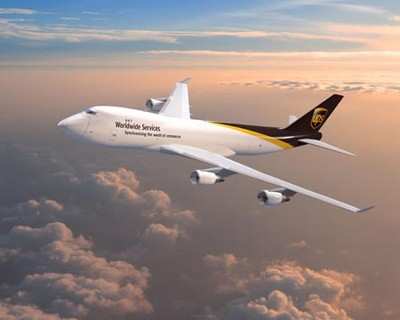Fri, Apr 27, 2012
Union Challenges Cargo Exclusion From Rest Rule
The Independent Pilots Association (UPS pilots) has filed its petitioner's brief with the U.S. Court of Appeals for the D.C. Circuit challenging the FAA's exclusion of cargo operations from new rules governing pilot duty and rest requirements. In a statement released to the media, IPA's General Counsel William Trent said that the FAA acted contrary to Congress' mandate when the Agency published new pilot duty and rest rules in December excluding the cargo segment of U.S. commercial aviation, which he called "vast and growing." Trent said Congress specifically directed the FAA to address the problem of pilot fatigue by issuing new rules based on the best available science.

"The FAA initially agreed stating that the old rules 'are inadequate to guard against fatigue and present an unacceptable risk to the public," Trent said. "Yet the same agency, under intense cargo industry pressure, abruptly made a 180 degree turn and left cargo pilots under the same set of flawed rules that the FAA and Congress found lacking."
In the filing, UPS pilots challenge the FAA's decision to exclude cargo operations from the new safety rules for three primary reasons. "First, the FAA's exclusion of cargo was based solely on a 'cost-benefit' analysis Congress never authorized the FAA to employ," Trent said. "Next, the FAA exceeded its authority by relying on a sketchy, imprecise 'cost-benefit' formula that failed to account for benefits even the FAA acknowledged would accrue by applying the new rules to all cargo operations and in failing to consider other obvious benefits. Finally, the FAA failed to provide the public with legally required notice and opportunity to comment both with respect to its intent to treat cargo differently than passenger operations, and with respect to its reliance on a flawed cost-benefit formula that was made public, for the first time, only after announcing the new rule excluding cargo."
Trent said the intent is not to overturn the new rules as they relate to passenger operations, but only to have the Court order the FAA to reconsider the inclusion of cargo operations consistent with its mandate from Congress and laws requiring adequate notice and opportunity for public comment.
The Court has order that the FAA file its respondent's brief by May 24, 2012.
More News
Also: B-29 Superfortress Reunion, FAA Wants Controllers, Spirit Airlines Pulls Back, Gogo Galileo Van's Aircraft posted a short video recapping the goings-on around their reorganiz>[...]
Light Gun A handheld directional light signaling device which emits a brilliant narrow beam of white, green, or red light as selected by the tower controller. The color and type of>[...]
"The journey to this achievement started nearly a decade ago when a freshly commissioned Gentry, driven by a fascination with new technologies and a desire to contribute significan>[...]
"Our driven and innovative team of military and civilian Airmen delivers combat power daily, ensuring our nation is ready today and tomorrow." Source: General Duke Richardson, AFMC>[...]
Aircraft Conflict Predicted conflict, within EDST of two aircraft, or between aircraft and airspace. A Red alert is used for conflicts when the predicted minimum separation is 5 na>[...]
 Airborne 04.16.24: RV Update, Affordable Flying Expo, Diamond Lil
Airborne 04.16.24: RV Update, Affordable Flying Expo, Diamond Lil ANN's Daily Aero-Term (04.20.24): Light Gun
ANN's Daily Aero-Term (04.20.24): Light Gun Aero-News: Quote of the Day (04.20.24)
Aero-News: Quote of the Day (04.20.24) Aero-News: Quote of the Day (04.21.24)
Aero-News: Quote of the Day (04.21.24) ANN's Daily Aero-Term (04.21.24): Aircraft Conflict
ANN's Daily Aero-Term (04.21.24): Aircraft Conflict



